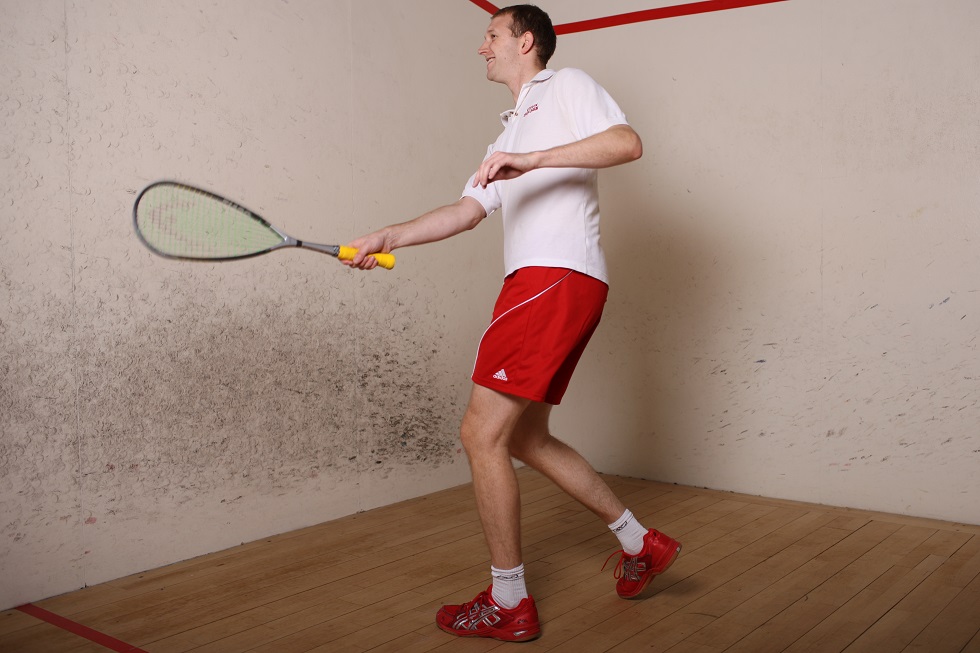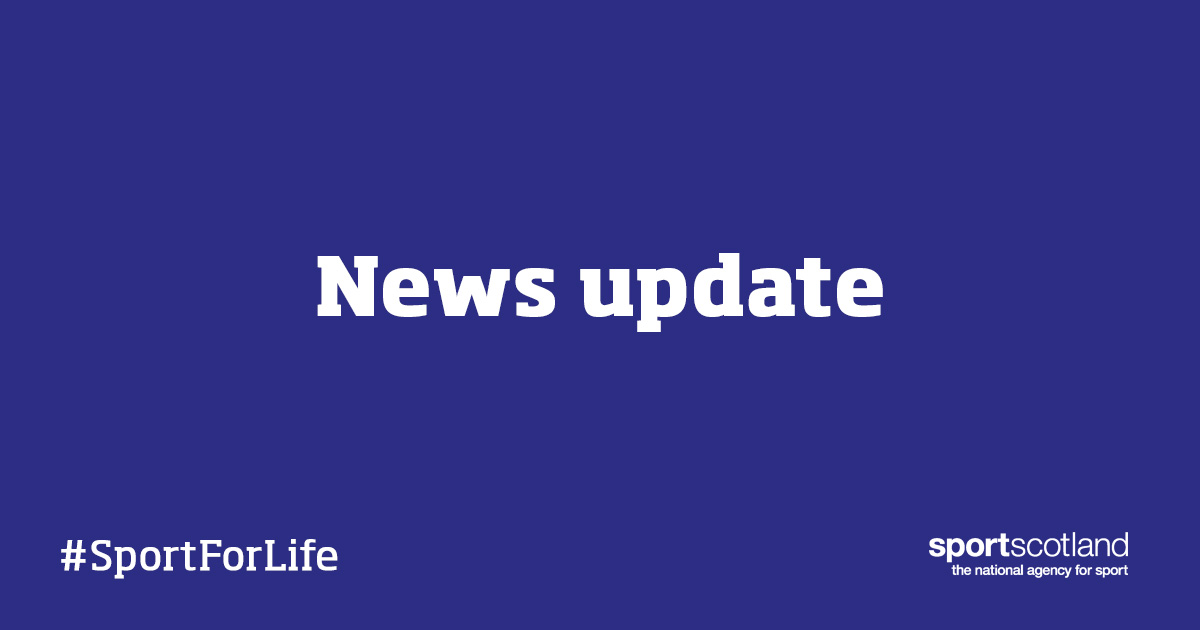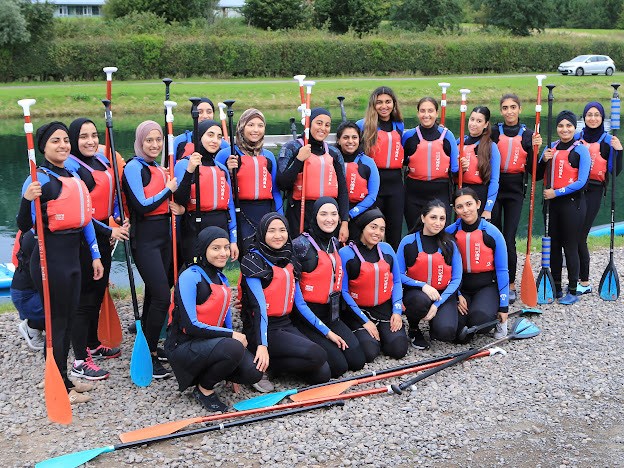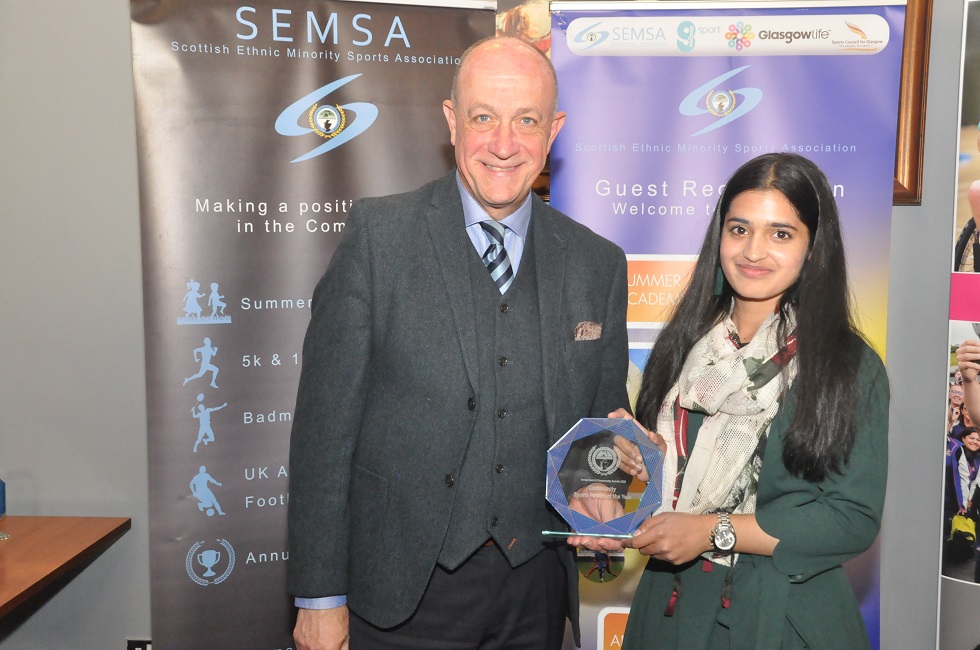Jonathan MacBride is a squash player and champion of LGBT+ rights who has worked hard for many years to promote equality and inclusion in sport.
He is chair of the Equality Advisory Group at Scottish Squash and Racketball (SSRL) and the organiser of an annual LGBT+ squash tournament that forms part of LEAP Festival Fortnight.
Here Jonathan writes about the barriers he has overcome and the changes he has witnessed in the Scottish sporting landscape.
What sports did you take part in as a child?
Aged five, I started playing badminton every week in the winter and tennis in the summer and played squash once a year with my parents until I was 11, when I got into squash properly. I found I could compete well in junior tournaments and played for Ulster at Under-14, U16 and U19 levels.

What was your experience of sport in school?
Growing up in Northern Ireland we had PE and then were introduced to rugby, hockey and athletics. Rugby made me uncomfortable. I always said that I didn't want to put my head down where all those metal studs were for tackling but on reflection I guess I didn't know how to deal with the male aggression in such close contact. Hockey and athletics allowed for breathing space.
The school changing rooms were a nervous place. I knew I wasn't supposed to like boys ‘that way’.
Nonetheless, being naked in front of all my classmates to take a shower was not something to look forward to. Swimming was OK but again the changing rooms were worrisome. I suppose it's a confidence thing. If you've got it then you're fine. I probably managed better than some others.
When did you first encounter a barrier in your sporting life?
It only made a difference once I'd worked out I was gay, aged 17, in 1996.
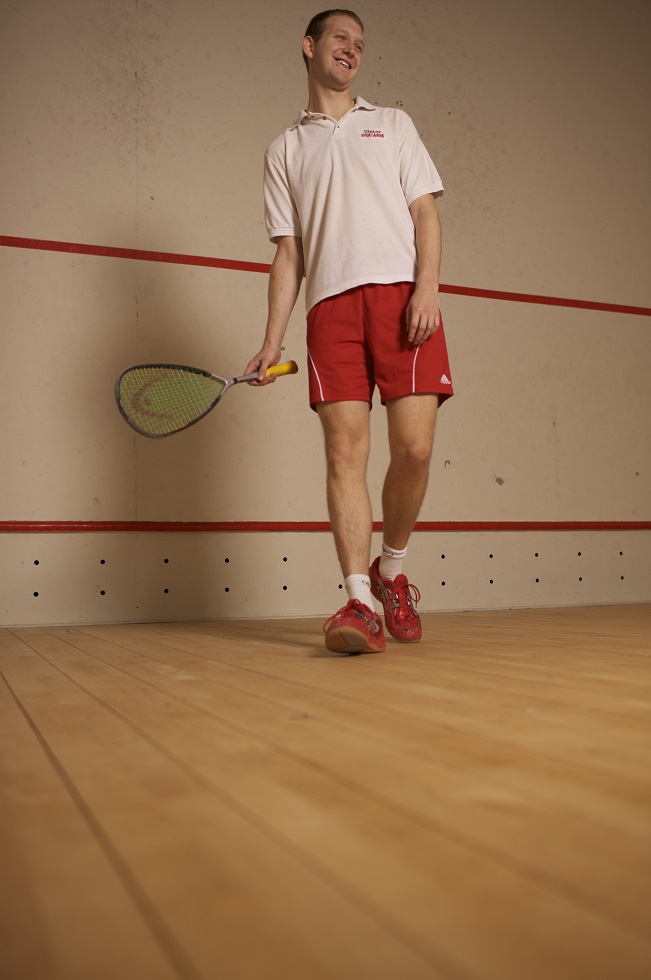 To be fair, I’ve never had a problem at squash but back then I was worried what the other players would think. I was worried how they would treat me since we were all changing together. On court it's different, it's about winning.
To be fair, I’ve never had a problem at squash but back then I was worried what the other players would think. I was worried how they would treat me since we were all changing together. On court it's different, it's about winning.
Squash clubs' changing rooms traditionally have communal showers so that was where my fears lay. Of course I had zero interest in any of the other players - they were straight, why would I be interested? Also they were on average 20 years older than me. Still I worried what the reaction would be to me coming out.
After a few years I plucked up the courage in 2000 to tell a fellow team member in his car on the way to a match and by that time he and some people had worked it out already.
To my surprise some in the club didn't know until years later. I guess it was easier because players knew me already. I've not changed, as far as squash is concerned. I've never asked what they thought at the time or what they think about this now. In a way it’s good that I no longer worry but what if someone joined the club and was out from the start?
Maybe back then it would be different but I would like to think at my club, Colinton Castle Sports Club, it wouldn't raise an eyebrow. Squash is a community, the players are very friendly and at the club they just want to play squash.
Times are different, laws are different, people are less concerned about what you do in your private life because they know that it's pretty much the same as what they do.
Were you able to overcome that barrier and, if so, how?
You just have to, don’t you? We've all got the same body parts. The sooner you realise that nobody cares how you look, especially because everyone else is in the same boat, then you can just get on with showering and not caring.
Play your best and socialise after the game. I don't think people place enough value in the socialising any more, in our ever-faster daily lives. Take that extra half-hour to get to know your fellow players.
How has the landscape of sport changed during your lifetime?
The difference is amazing. Back then there was not a single out LGBT+ person playing professional sport. Now you have a role model in almost every sport to inspire you and be proud of.
Sports are criticised if they do not have examples of diversity. I watched a documentary by gay rugby player Gareth Thomas, who was trying to find ways to make football better in England & Wales and finished by sending a Charter to all clubs to sign up to.
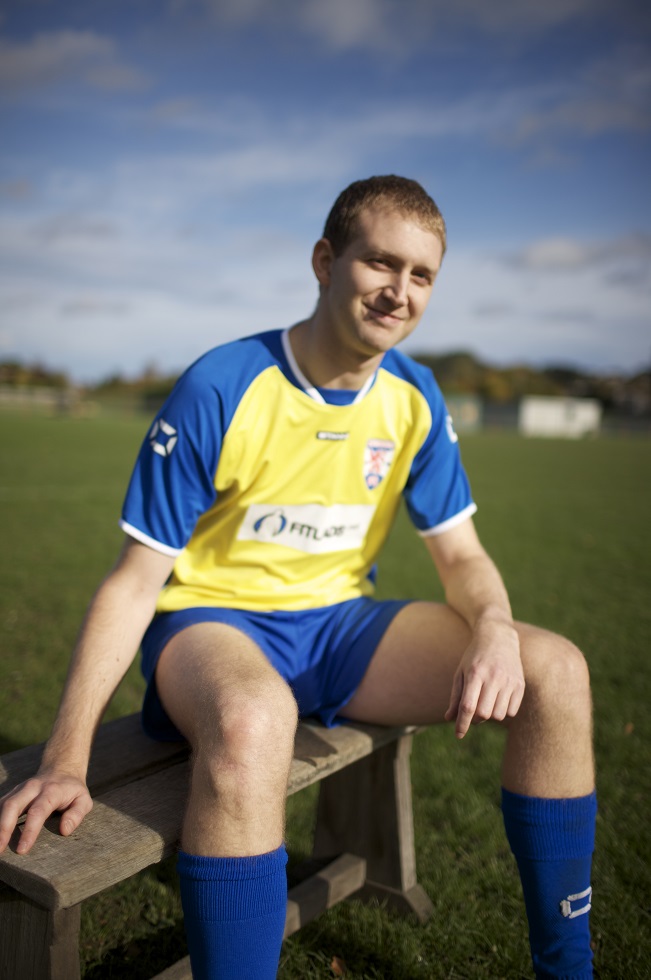
In Scotland it was announced recently that 13 of Scotland's biggest football clubs have signed up to work for a more LGBT-inclusive game, with leading players backing the Scottish LGBT Sports Charter, created by the Equality Network two years ago.
Earlier this month Jenny Duncalf came within one point of winning the world women’s doubles championships. She's from my community. We just need one of the men’s world-ranked players to come out next.
In recent years, LGBT+ sports clubs have started up for every sport and I played at a football club for the first time.
Two of my proudest moments have been winning the World Outgames 2009 Copenhagen and 2013 Antwerp squash gold medals. The World Outgames and the Gay Games are multi-sport events aimed at LGBT people for excellence in sport and bringing together the community.
With few professional sport role models, I have found these international events to be inspiring. Sport players are a minority within the LGBT+ community and the community feeling at these events has been incredibly rewarding for me.
As a result, I organised an LGBT Scottish Open squash tournament, supported by LEAP Sports Scotland, at which the SSRL President thanked everyone for taking part.
Sport has increased my confidence. With increasing equality and inclusion work in the sporting world, I hope more LGBT+ people will take up a range of sports.
Has Scottish sport managed to reduce the number of barriers to participation?
Sport in Scotland has definitely become more welcoming for LGBT+ people and the LGBT Charter In Sport helps as a focal point for governing bodies to understand good practice.
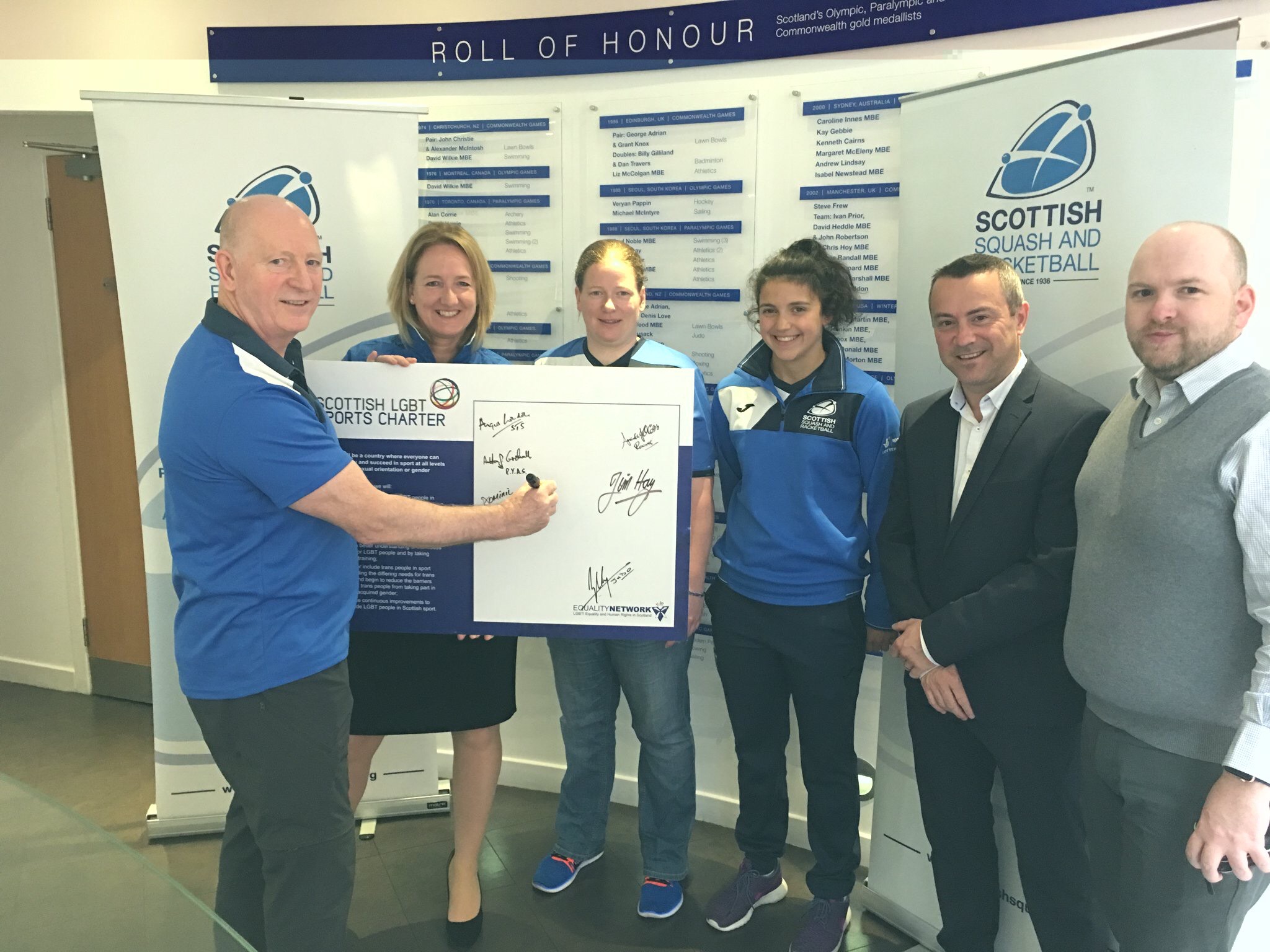
Many Scottish Governing Bodies of sport (SGBs) have reached out to the LGBT+ sports clubs, which makes participants feel valued. Throughout Scotland, LEAP Sports works with SGBs to increase inclusion, reduce barriers to participation and engages with the LGBT+ community to promote activity and exercise.
In my sport, eight years ago I helped SSRL create an LGBT page on their website and reviewed a transgender inclusion policy and was delighted when they signed the Charter this year.
They immediately pinned the picture (right) to the top of their Twitter feed. Although I don't expect it to stay there forever, I recognise they are putting great efforts to show squash is inclusive and welcoming to all.
Six months ago the chief executive, Maggie Still, asked me to chair an Equality Advisory Group to provide insight operationally and in governance.
Our group consists of squash players who represent gender, age, LGBT+, ethnically diverse communities and disability diversity strands. Since then SSRL have applied for equalities funding and employ someone two days a week exclusively to focus on inclusion.
They supported the British Transplant Games squash competition in Hamilton - organised by the BTG and South Lanarkshire Council - and successfully applied to be one of nine sports included in a Scottish Women In Sport programme. They are also about to become (I believe) the first SGB to have a stand at a Pride in Scotland. Squash and racketball are games for everyone to play and my SGB is being proactive.
How can Scottish sport improve in making sport inclusive and accessible to all?
From a long-term perspective, schools are where it starts. More could definitely be done there by the sports organisations to emphasise that sport is inclusive of all diversities.
For the rest of the sport-playing population I'd like to see regular articles in newspaper sports pages with a diversity and inclusion focus. More evidence of equality, diversity and inclusion commitments in clubs would also be good.
What about displaying the LGBT Charter in Sport? Every sport should sign up and every sports club should display it.
It might mean nothing to the majority of members but it will make a huge difference to some. Nowadays most people have disabled, BME (black and minority ethnic) or out LGBT+ family or friends so it would bring a sense of pride that a club is promoting equality and inclusion. Equality initiatives from the top down must be embraced at club level.
Different organisations use different acronyms to refer to specific groups, and terminology is always evolving. I include within LGBT+ those who identify as lesbian, gay, bisexual, transgender, queer, gender-fluid, intersex, non-binary, pansexual, asexual and polyamorous, individuals and communities whose sexual or gender identity is a matter of shared personal, political and/or social experience.
Find out more
sportscotland strives to ensure, through our collaboration with partners, that every person in Scotland has opportunities in sport. We are also committed to embedding a culture of equality and diversity in our organisation and ensuring that all employees are treated fairly, without discrimination because of age, disability, gender reassignment, marriage or civil partnership, pregnancy and maternity, sex, race, religion or belief, or sexual orientation.
Read our Equality and Sport Research to learn more about the current equalities & inclusion landscape in Scottish sport, including promotion of LGBT+ rights.
Interested in getting involved in squash or racketball? Check out the SSRL website.

